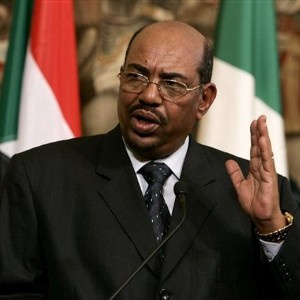The Storm Sudan Will Weather

Sudan was once known as breadbasket of the Arab world. It was from this country that pioneers of independence and anti-colonial movements and revolted against Britain.
Sudan is a big country, having both arid deserts and dense forests. The Nile River passes through this country, and with its cotton best clothes in the world are made. But Sudan, long afflicted with a civil war, has now faced a new problem: the International Criminal Court has issued arrest warrant for its president, Omar al-Bashir, and two other high-ranking officials.
But why was the arrest warrant issued at this certain period and what will its outcome be? If we look at the history of Sudan, when it was in West’s political and military camp, we find out that problems were less under the rule of Jafar Nimeiri.
During this period, as an ally Sudan had extensive cooperation with Western counties. But things changed after Omar Al-Bashir became president. Western countries changed their attitude and caused problems for this country, most important of which where their aids for rebels of South of Sudan. This was never done covertly; even Madeleine Albright, Former U.S. Secretary of State met rebel leaders in Kenya and promised further support.
The policy followed by Al-Bashir and other Sudanese officials is defending territorial integrity of their country in any way possible, using all capacities. Sudan had to pay a heavy price for this and actually a great portion of the country’s budget was spent for military purposes.
Sudan is a vast country with rich resources. The latest resource discovered in this country is oil. After finding out about these lucrative resources, Western oil companies stepped into Darfur and with their tempting promises, armed some groups to pave the way for their presence in the region after Darfur’s independence.
It was since this time that Darfur became divided between pro- and anti-government groups. The bloody clash between these groups has unfortunately left thousands of dead so far. Up to 2004, Darfur was a peaceful region and despite their severe poverty, people followed their ordinary life . But the region fell into chaos after companies smelled the scent of oil.
The central government came into action, but its efforts to return peace to the region were unsuccessful. Strife continued until one of the rebel groups named the Justice and Equality Movement launched an offensive on Khartoum, the capital of Sudan. The role of Chad, Israel and some Western countries in this story were later revealed. With expansion of violence in Darfur, Western media started their campaign and through the image they portrayed from the region, asked for intervention of West and United Nations. But Western countries’ attempts have not been successful and Sudan has resisted against their demands, since it knows one step back may lead to other steps backwards.
The Sudanese government tried to reduce the tensions by paying more attention to Darfur and sending more aids, but this was not enough for Western countries and they asked for sending peace-keepers to the region. They wanted these forces to be fully equipped. And by using Chad’s territory, these countries meddled in Darfur’s affairs.
However, after strong resistance of the Sudanese government, Western countries entered a new phase, leading to the arrest warrant issued by the Argentinean prosecutor of International Criminal Court.
It seems that Luis Moreno-Ocampo’ warrant, is in accordance with West’s attempts. Mr. Ocampo has asked for indictment of Omar Al-Bashir and two other senior officials for committing war crimes. The warrant has targeted high-ranking officials and this is evidence that West wants to gain whatever possible and pave the way for other demands from Sudan.
After opposition of some countries, including Arab countries, the Argentinean prosecutor has asked Sudan to hand the two Sudanese officials if it wants to remove Al-Bashir’s indictment. This clearly shows that they just want to put the Sudanese government under pressure and are ready to start from minor steps.
But it seems that the whole story will be forgotten in a few days and with the support expressed for this country, the International Court will give up its demand.
Iran’s support for the government of Sudan and its nation can influence bilateral relations. While during Jaafar Namiri’s rule, Sudan helped Saddam Hussein’s regime in its war with Iran and even helped it with military troops, with presidency of Omar Al-Bashir the relations entered a new phase. Iran now runs several investment projects in Sudan and the two countries enjoy strategic ties. The recent visit of Al-Bashir’s envoy to Tehran, Iran’s support for the Sudanese government and its criticism of International Criminal Court’s measure, show the strong bonds between these two countries.

